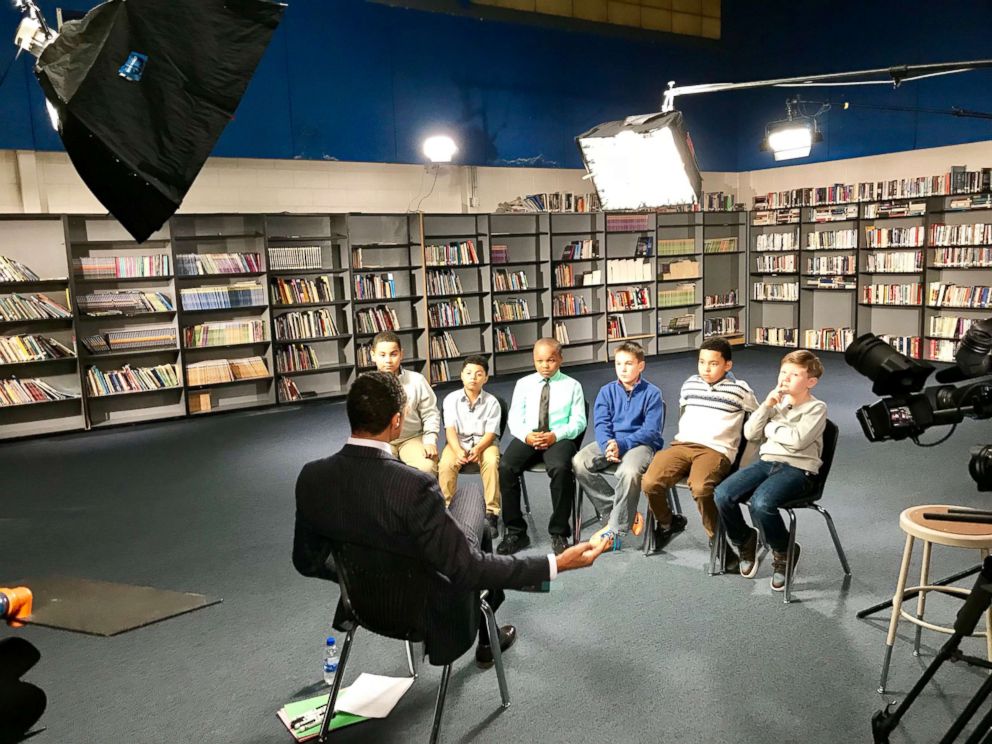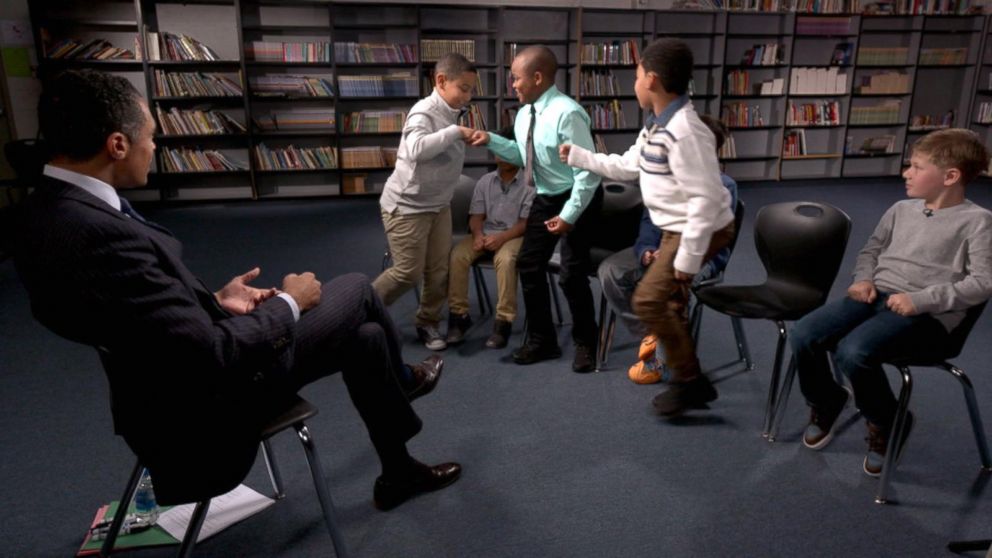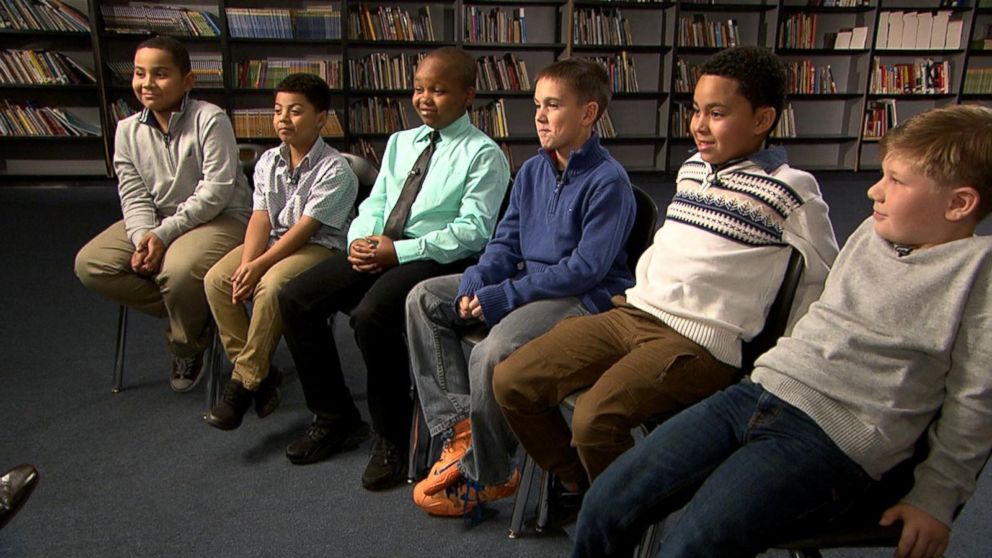#MeToo movement highlights question for parents: How to raise good men
"GMA" brings in experts, parents, boys to discuss raising men who respect women.
— -- The #MeToo movement that has encouraged women to speak out about their experiences of sexual harassment or assault, contributing to a recent wave of prominent American men facing accusations of sexual misconduct, has also sparked another conversation -- on parenting.
A key question coming to the fore is how best to raise boys so that they grow up to be kind men who treat women as equals and with respect.

“Good Morning America” is taking an in-depth look at that conversation by speaking with boys, parents and experts about raising good men.
“GMA” correspondent T.J. Holmes went straight to the source, speaking with six boys, ages 7 to 10, in the Houston area.

Some of the boys said when told to “man up” you are being told to be “tough” and “strong.”
That raised a red flag for one expert, Dr. David Anderson, a child psychologist at New York’s Child Mind Institute.
“They've gotten some of those social messages about being rough and tough and, you know, that girls are frail and those kinds of things,” said Anderson, who watched the interview with the boys from another room with their parents.
“The boys grow older, and we want to give them a much more diverse idea of what it means to be a good person, that it's important to be kind for everybody, that it's important to protect everyone,” Anderson said.

One mom praised her husband for helping to teach their 7-year-old son about respect by reminding him to open doors for his mom and sister.

Anderson said such parenting, modeling and encouragement of good behavior is important whether it comes from a male or female parent.
"It's catching the boys doing the things that you want to make sure they do more of," he said. "And that takes being there and having those conversations, saying, 'I was really proud of how you acted in that moment.'"

Anderson told the parents of the six boys that they, like any generation of parents, have new topics they have to address with their sons based on the “news of the day,” in this case, sexual harassment.

Anderson advised the parents that their sons may not fully understand the topic but, with open conversation, this generation of kids can move society forward.
“I think it's about having conversations that are open like this one, to look at what those values are, how they dovetail with the values that you have at home,” he said. “And then making sure that you pick and choose the ones that are both being the kind of man that you'd like them to grow into and also the ones that are consistent with your family.”
Thought starters for parents: Q+A with child psychologist David Anderson
1. For parents, you mentioned the importance for boys to have a positive role model. What can parents, including single mothers, do to help boys find good male role models?
“I think the first point that we think about is that good people are good role models, so it doesn’t necessarily have to be a male or female,” Anderson said.
Good role models can be coaches, teachers, even a barber like one boy came up with in the “GMA” interview, Anderson noted. But, ultimately it’s someone who “can articulate their values and really demonstrate those to the boys, modeling good behavior.”
2. This age group – boys 7 to 10 -- offers parents a unique window of influence. How do parents make the most of it?
“When we think about the stages of moral development for groups this age, there's a kind of all-or-nothing thinking -- you're either following the rules, or you aren't,” Anderson said.
Parents should encourage boys to develop more flexible thinking by questioning basic assumptions about gender roles.
“We know that boys this age are learning things in rules. So that can be to one parent’s advantage in the sense the boy learns, ‘I need to brush my teeth before bed every night,’ but then at the same time there might be these rules that [You can’t tell secrets to girls’] … And that’s where we want to bring it back to having those conversation openly,” Anderson explained.
Forming friendships between young boys and young girls can be important tool in this process.
“Parents [can] give examples of girls [boys] can tell secrets to and to ask the boys for more specific examples of the kids in their class they can trust and not trust. That brings in more flexible thinking.”
3. Is it OK to talk to boys about chivalry such as opening doors for women? “Social shaping can be great in certain ways. It teaches us values to be nice to each other and ‘Do unto others,’ that kind of thing,” Anderson said.
Chivalry isn’t wrong, per se, but it’s about teaching boys to have general respect for women and men.
“But at the same time we want to look at the rigid rules – the ones that might get us in trouble – and those are the ones that we try to question.”




